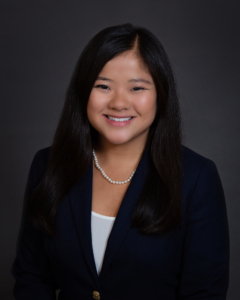Friday Feature for May 20, 2022: RMED Student Maria Climaco Van Gundy
 After a short hiatus, we are thrilled to be back this Friday with another special feature on RMED student Maria Climaco Van Gundy! She is originally from Arcola, IL and is just beginning her 4th year in the RMED program. She completed her undergraduate degree at University of Illinois at Urbana-Champaign, where she majored in Community Health and Chemistry. She’s known since a very young age that she wanted to follow in her father’s footsteps of practicing medicine, and you can tell by the friendly and genuine smile on her face that she is heading on the path she has always imagined for herself! Let’s learn more about Maria.
After a short hiatus, we are thrilled to be back this Friday with another special feature on RMED student Maria Climaco Van Gundy! She is originally from Arcola, IL and is just beginning her 4th year in the RMED program. She completed her undergraduate degree at University of Illinois at Urbana-Champaign, where she majored in Community Health and Chemistry. She’s known since a very young age that she wanted to follow in her father’s footsteps of practicing medicine, and you can tell by the friendly and genuine smile on her face that she is heading on the path she has always imagined for herself! Let’s learn more about Maria.
1. What did you want to be when you were growing up? Are you majoring in it now, or are you following a different path?
I grew up in a unique situation where my father’s family practice was attached to our home in Arcola. I’ve always had an interest in medicine and becoming a doctor. This was solidified after attending the National Youth Leadership Forum on Medicine at UCLA in high school. Majoring in Community Health opened my perspective to other aspects of the healthcare field. In college, I found additional interests in community health, medical ethics, social determinants of health, and health education.
2. Why did you choose to focus on rural medicine?
I chose to focus on rural medicine because of the longitudinal relationships you are able to build with patients. I have always wanted to give back to the community that helped get me where I am today. I have been fortunate enough to complete multiple rotations close to home in Central Illinois. People in rural communities truly care about one another and this is the environment I hope and plan to practice in.
3. What has been something you have found to be an unexpected, yet pleasant surprise during your RMED experience?
The support and hospitality of the RMED and National Center for Rural Health Professions staff is truly one of a kind. Even from interview day, I was welcomed with open arms. They have made the transition to medical school a much more enjoyable process. I’ve also enjoyed the fun activities they’ve hosted!
Additionally, I have appreciated every patient, staff member, and attending who has supported my learning during rotations. Many patients in rural communities have been seeing their physicians for years and I am grateful for each patient that let me be part of their care even if I was a new face to them. I was also pleasantly surprised to see that Family Medicine doctors still deliver babies! I loved being able to participate in prenatal care, deliveries, and pediatric care after the babies were born!
4. Are you involved in any extracurricular activities? If so, which ones? How have they added to your experience as an RMED student?
a. I am the President of the Dance Club. Last fall, I hosted a Tinikling Dance Workshop with the help of a fellow RMED student who generously let us borrow bamboo sticks. Tinikling is a traditional Filipino dance. It was a fun way to get our classmates together, take a break from studying and rotations, and teach them something so meaningful to my culture and me. Growing up in Arcola, I had never learned any type of Filipino dances and was lucky enough to participate in cultural dancing when I went to college at UIUC. It was so great to then share this experience with my medical school classmates!
b. I am also the President of the Global Community Health Action Team (GCHAT). For the last two years, we have done a Valentine’s Day Candy Grams Fundraiser. This year, one of our board members chose to donate the money towards Tornado Relief in Kentucky. This was another reminder of how we can support our rural communities as students.
c. I am also part of the Student Committee on Diversity and Inclusion. This has added to my experience as a RMED student because we engage in conversation with admissions to advocate for recruitment of Underrepresented Minorities in Medicine especially in rural areas.
5. What advice would you give to students applying to medical school? How would you encourage them to consider rural health?
a. Don’t be afraid to ask for help! You are not in this alone. Ask your professors for help in office hours or turn to your classmates. Ask people to review your personal statement and application. Find mentors or current medical students for guidance. We may seem busy, but are definitely willing to help!
b. Shadow different jobs in healthcare because there are a lot of options! This will also let you have a holistic view of the healthcare team and how each role plays an important part in providing excellent care.
c. Get involved in extracurricular activities outside of medicine/science/research to find your passions! A large part of the medical school application is what makes you unique and this is very useful for interview talking points!
d. I would encourage people to consider rural health because of the tight-knit community aspect. In my rural rotations, I have witnessed staff members being there for each other professionally and personally. People will go out of their way to help one another and their patients. There is also a high need for primary care physicians in rural communities!
6. What hobbies/interests do you have outside of school?
I enjoy traveling, dancing, spending time with my nieces and nephews, attending concerts, and learning about new cultures.
7. Is there anything else you’d like to share about yourself or your RMED experience?
I am very grateful to be part of the RMED program and for the friends I’ve made along the way with similar upbringings. I’m lucky to have had hands-on training directly with attendings across the state and incredible mentors through the National Center for Rural Health Professions!
We’ll be back next week with another Friday Feature as well, so stay tuned!


